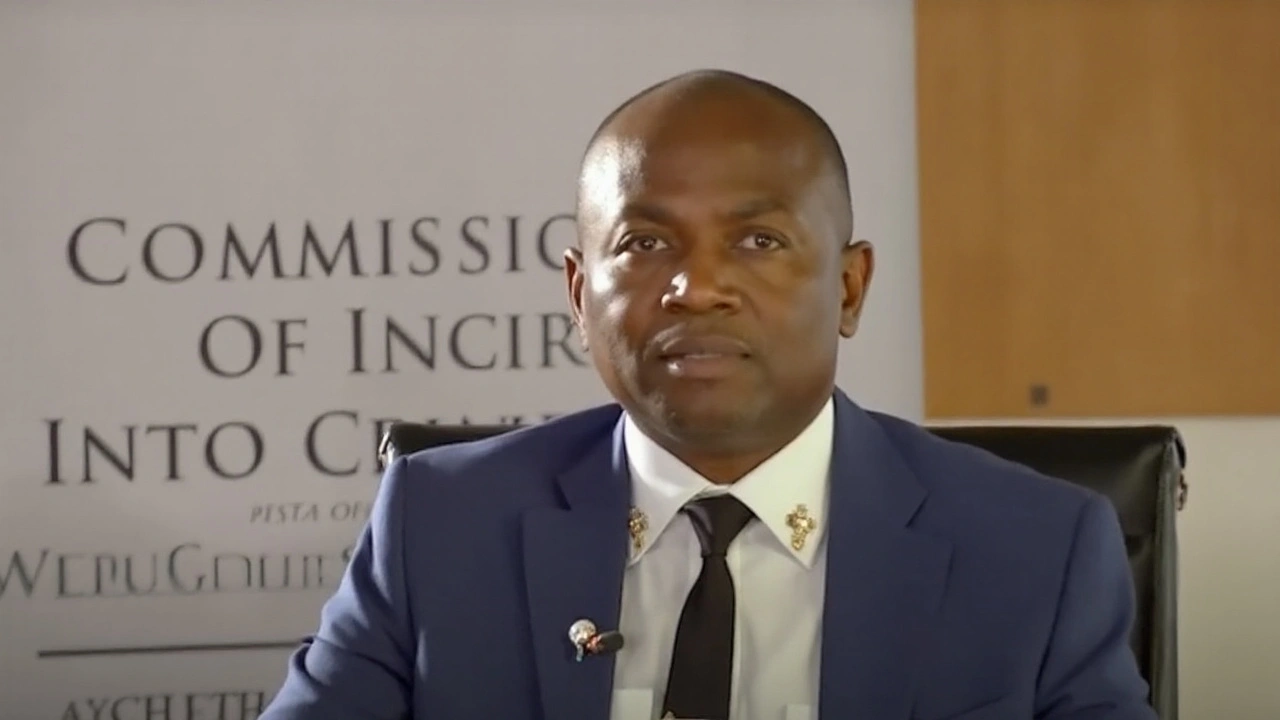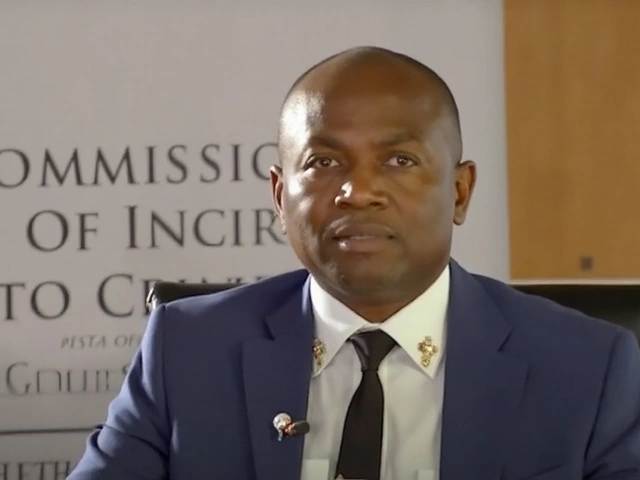Mkhwanazi’s Testimony on RBM Murders
During the third sitting of the Madlanga Commission, Lieutenant‑General Nhlanhla Mkhwanazi, the sole witness, turned the spotlight on a series of violent deaths at Richard's Bay Minerals (RBM). He recounted that in 2021 he attended a high‑level briefing with the KZN premier and the Minister of Minerals and Energy, where mining executives voiced alarm over a spate of murders that had never been solved.
"Executives were being targeted in the plant, and the police were seen as ineffective," Mkhwanazi said, echoing the frustration of the business community. He explained that the meeting convinced him to act as the provincial police head, citing his constitutional duty to protect citizens and enforce the law. Within days, a specialised team of detectives was dispatched to Richard's Bay to re‑open the cold cases and pursue leads that had previously stalled.
The commissioner also disclosed that several senior RBM officials had been killed under suspicious circumstances, hinting at possible links to organised crime groups operating in the region. He warned that without a decisive police response, the mining sector’s stability—and the broader provincial economy—could be jeopardised.
Broader Allegations of Political Interference
Beyond the mining saga, Mkhwanazi used the platform to repeat the explosive claims that sparked the commission’s creation. He accused criminal syndicates of penetrating the police, judiciary, parliamentary bodies and even intelligence agencies, effectively weaponising the state against dissent.
One focal point of his testimony involved the suspended Minister of Health, Senzo Mchunu, and his alleged associate, businessman Brown Mogotsi. While details remain sparse, Mkhwanazi suggested that the duo’s network may have influenced the dismissal of the KZN Political Killings Task Team earlier in the year, a unit that once investigated politically motivated murders.
The Madlanga Commission itself was birthed by President Cyril Ramaphosa after Mkhwanazi’s July 6, 2025, whistle‑blowing letter. The inquiry, formally titled the Commission of Inquiry into Criminality, Political Interference, and Corruption in the Criminal Justice System, operates under the guidance of acting Deputy Chief Justice Mbuyiseli Madlanga.
Live broadcasts have kept the nation tuned in, and media outlets across the spectrum have followed the hearings closely. So far, Mkhwanazi’s detailed accounts have painted a picture of systemic rot, from unsolved murders at a major mining operation to alleged collusion between high‑ranking officials and criminal elements. The commission continues to sift through his statements, promising further revelations in the days ahead. Madlanga Commission remains the focal point of South Africa’s struggle to reclaim the integrity of its justice institutions.



No more silence.
Meanwhile, the minister of health is busy being suspended while his buddy runs shadow operations.
Yep. We’re definitely living in the plot of a Netflix thriller. And it’s not even scripted.
hope they actually follow through this time 🤞🙏
that’s more than most
not just another report that gets filed and forgotten
people are dying out here